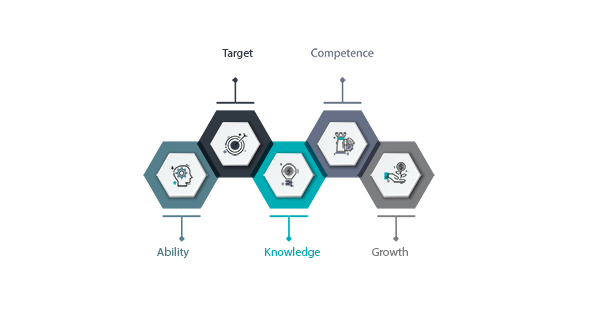By now you have all heard the gloom and doom surrounding the current talent shortage plaguing the economy, especially as it relates to high skilled and manufacturing jobs. While that may be true in very specific localized geographies, a recent report from Boston Consulting Group offers intriguing insights that apply beyond just manufacturing. Availability of the right talent at the right time (Competency Based Talent Management-CBTM or Talent Supply Chain Management-TSCM, take your pick) have been and will continue to be a major competitive differentiator for your company. However, depending on the educational system to be your supplier of talent is highly risky. Having worked on this issue for almost 2 decades gives me some license to opine.
“The real problem”, according to BCG, “is that companies have become too passive in recruiting and developing skilled workers…Companies are not doing enough…have scaled back in house training….retirement of aging workers…companies must do much more to identify, recruit, train and employ” are all points that apply to every other sector, not just manufacturing.
I have spent lots of time with senior executives who bemoan the fact that while they recruit from very good schools, they are still not getting “usable” talent and it takes 12- 18 months to start getting net value. I’ve talked to the Deans of many educational institutions who, even when a few acknowledge the issue, don’t really see it as “their” problem – yet!! This is why many, many large organizations have started setting up in-house ”schools” and “universities” to ensure a steady supply chain of talent. This is why many organizations put new recruits through internal “finishing” schools to make them far more productive and usable a lot faster. We know because we have worked on a number of these initiatives for clients.
The report goes on-“Investment by the public and private sectors in skills development needs to increase and accelerate (emphasis mine). Companies can meet many of their needs on their own through more aggressive recruiting and training”. It is clear that most aggressive and progressive companies have realized that they must develop their own talent pool. Unfortunately, training budgets are still the first line item sacrificed during budget wars. This dichotomy is significantly increasing the Talent Supply Chain risk and that risk cannot be mitigated by the educational system. And the long lead time on the Talent Supply Chain makes that risk even harder to mitigate – Talent Development takes time.
The other larger issue (to be discussed another day) is that almost all of the current efforts, whether in the educational system or the private “schools” and “universities” are all geared to the acquisition of new skills and behaviors – and the mere acquisition process is a net cost to the corporation and no value at all. In addition, mere acquisition has a very short shelf life in terms of retention. Acquisition is what every training program focuses on. Application of new skills and behaviors leads to value creation for the organization – it’s the payback or the return on the training investment. Application leads to Competency Development – and competencies have a much, much longer shelf life.
So where are you in your personal competency development? What about your team? Your functional organization? Are you focused on Talent Development as a competitive differentiator? Have you launched your own “school” or “university” or are you depending on the current educational system to manage your Talent Supply Chain?


8 Comments
Pingback: Just Focus on What They Wear-Throw Away Myers-Briggs - News You Can Use
Pingback: Selling the Change – Think Like a Sales Person . . . . . Part II - News You Can Use
Pingback: Supplier Relationship Management – a candid discussion! (at the Supply and Value Chain Center-Loyola University) - News You Can Use
Pingback: The Millennials Are Coming, The Millennials Are Coming-R U RDY For Some Football? - News You Can Use
Pingback: The Top Ten Myths . . . . . . - News You Can Use
Pingback: Big Data Tells the Story On Competencies - News You Can Use
Pingback: Talent Development in Procurement/Purchasing/Strategic Sourcing/Supply Chain (That title needs to be simplified so that we can all start using one title for this professional community!) - News You Can Use
Pingback: The 20 People Skills You Need to Succeed. Period. - News You Can Use